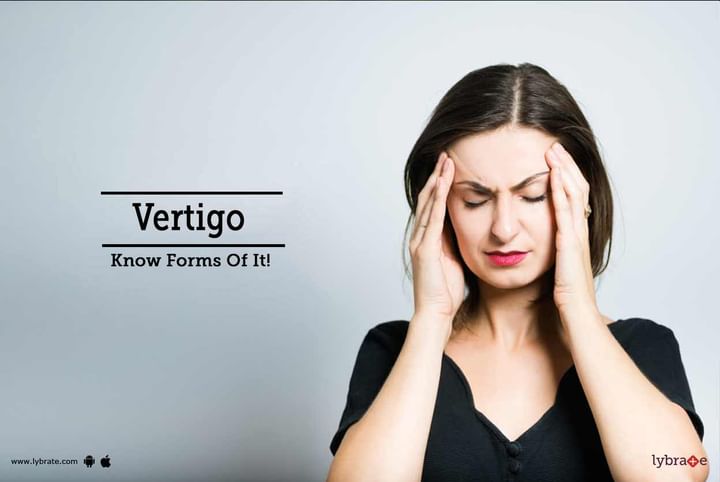Vertigo - Know Forms Of It!
Vertigo is a feeling that your head or your surrounding is spinning. It is an illusion of movement. People with vertigo cannot bend down to pick up stuff, as they may feel the spinning sensation.
There are two types i.e. objective and subjective. Vertigo is said to an objective when the surrounding seems to be spinning; subjective is when the person feels their head is spinning. Vertigo can be slightly mysterious to diagnose. There are, however, some causes which can help you understand it better. There are two main types of vertigo: Central and Peripheral. Central vertigo is when there is an issue in the brain that is causing vertigo. Middle ear problems leading to vertigo is known as peripheral vertigo.
Central vertigo:
- Paroxysmal positional vertigo (BPPV): Also known as, Benign paroxysmal positional vertigo (BPPV). These episodes are benign and occur in paroxysms or spurts. The person will feel the attack with simple actions like turning over in bed. They do not last long, often about 20 to 30 seconds.
- Migraine: Known for severe headaches, migraine can also cause vertigo.
- Head trauma: This type of vertigo usually subsides with time as the person recovers from trauma.
- Neck injuries: Injury to nerves and blood vessels in the neck can also lead to vertigo.
- Health conditions: General health issues like arteriosclerosis, multiple sclerosis, and diabetes lead to vertigo.
- Stroke or blood flow blockage: When blood does not reach the base of the brain, it can result in vertigo.
Peripheral vertigo:
- Middle ear infections: Labyrinthitis (either bacterial or viral) a middle ear infection can cause vertigo. Common viruses include herpes, influenza, measles, rubella, hepatitis, and EBV.
- Meniere’s disease: Another ear problem causing vertigo is Meniere’s disease. This is known for its 3 symptoms – vertigo, ringing in the ears (tinnitus) and hearing loss. This can be caused by various factors, some of which can include ear infections, head injuries, or heredity. The exact cause of the condition is not established clearly.
- Acoustic neuroma: A tumor of the nerve tissue in the inner ear may cause vertigo. The person can also have hearing loss and a ringing sensation.
Other causes of vertigo include:
- Pregnancy: During the first trimester, in particular, the various hormonal changes can cause vertigo. The expanding uterus puts pressure on the blood vessels, leading to the reduced blood supply to the brain, which can also induce vertigo. As the baby continues to grow, lying on the back can put pressure on the blood vessels to the heart, causing vertigo.
- Stress: It is known to worsen vertigo, which a person may already have. Anxiety and panic attacks are known to worsen vertigo.
- Travelers: Be it ship, air, or train, some people experience a spinning sensation with any form of travel.



+1.svg)
